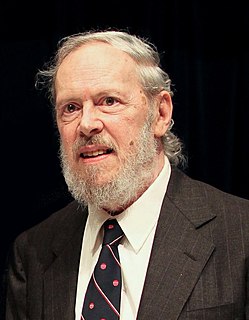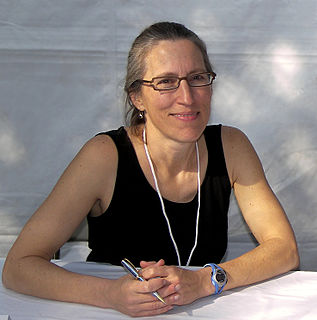A Quote by David Shields
I like having a paperback original. And until literature catches up with the culture - the violence, language, syntax, compression, concision, complexity and diversity that the Internet offers - books still make sense.
Related Quotes
This was an age before e-books. We all knew that the only way you can allow a book to survive in print in the long term is in paperback. The hardback has a certain life, and then it stops having that. It stops selling, and if you want the book to just stay around there has to be a paperback edition. So if there were not a paperback edition the book would eventually disappear from the shelves, and we would have lost the battle.
The complexity of C++ (even more complexity has been added in the new C++), and the resulting impact on productivity, is no longer justified. All the hoops that the C++ programmer had to jump through in order to use a C-compatible language make no sense anymore - they're just a waste of time and effort. Now, Go makes much more sense for the class of problems that C++ was originally intended to solve.
I see people getting so caught up in celebrating diversity that they are neglecting their commonality. I don't see this as a good thing. The Chinese culture has survived for more than five thousand years in part because the Chinese have embraced the same language and culture. I hope I am wrong about this, and that the flame is still on beneath the great American melting pot. Americans need each other, and a house divided, no matter the color of its occupants, is still divided. And divided we all fall.
Fanfiction is what literature might look like if it were reinvented from scratch after a nuclear apocalypse by a band of brilliant pop-culture junkies trapped in a sealed bunker. They don't do it for money. That's not what it's about. The writers write it and put it up online just for the satisfaction. They're fans, but they're not silent, couchbound consumers of media. The culture talks to them, and they talk back to the culture in its own language.
It would be really great if someone would invent a new Internet with the specific purpose of not making money off of it, but making it what it originally was, a free marketplace of ideas, and there are still aspects of the Internet that are that. Wikipedia, essentially, is still the bastion of the original ideals of the Internet.
I speak as an unregenerate reader, one who still believes that language and not technology is the true evolutionary miracle. I have not yet given up on the idea that the experience of literature offers a kind of wisdom that cannot be discovered elsewhere; that there is profundity in the verbal encounter itself, never mind what further profundities that author has to offer; and that for a host of reasons the bound book is the ideal vehicle for the written word.



































